非木建筑 | 月下餐廳
月下餐廳項(xiàng)目誕生于杭州重點(diǎn)歷史文化街區(qū),是位于大兜路沿運(yùn)河歷史街區(qū)的建筑改造項(xiàng)目,毗鄰浙江省重點(diǎn)文物保護(hù)景點(diǎn)-香積寺。自2009年以來,運(yùn)河集團(tuán)對(duì)整個(gè)歷史街區(qū)進(jìn)行了逐步提升改造,旨在保護(hù)和重新詮釋運(yùn)河沿線文化圈。
The Villa Moon Restaurant project was born in a key historical and cultural block in Hangzhou. It is an architectural renovation project located in the historical block along the Dadou Road and Yunhe (canal), adjacent to Xiangji Temple, a key cultural relic protection scenic spot in Zhejiang Province. Since 2009, the Canal Group has gradually upgraded and transformed the entire historic district, aiming to protect and reinterpret the cultural circle along the canal.
▼玻璃大面的設(shè)計(jì)給予了建筑更為顯眼的進(jìn)出關(guān)系,在整個(gè)街道立面中顯得更為鮮艷,the glass facade provides project a more obvious depthness, help inlighting the project from the streetand stand out ? SALOME STUDIO
月下餐廳的概念靈感源自唐代詩人李白《月下飲酒》中所描述的場景:“且須飲美酒,乘月醉高臺(tái)”,意在營造遠(yuǎn)離城市喧囂,享受自然饋贈(zèng)的恬淡閑適氛圍。以中國傳統(tǒng)文化的特質(zhì)為概念基礎(chǔ),結(jié)合現(xiàn)代都市生活方式,在概念創(chuàng)意過程中,應(yīng)用對(duì)比鮮明的中國傳統(tǒng)園林建筑元素及現(xiàn)代建筑典型用材,如:月形拱門(庭院入口門)、木窗立面裝飾、天然石材以及現(xiàn)代雙立面遮陽體系、室內(nèi)空間“去裝飾化”理念。
The concept of Villa Moon is inspired by the scene described in “Drinking under the Moon” by Li Bai, a poet of the Tang Dynasty: “You must drink fine wine, and ride the moon to get drunk on the high platform”. Based on the characteristics of traditional Chinese culture, combined with modern urban lifestyle, in the process of concept creation, contrasting elements of traditional Chinese garden architecture and typical materials of modern architecture are applied, such as: moon-shaped arches (garden entrance doors), wooden windows Facade decoration, natural stone and modern double-facade shading system, and the concept of “remove decoration” in interior space.
▼建筑一角,城市角度,city urban layers, city view ? SALOME STUDIO
▼項(xiàng)目外部不再使用燈光,從而突出了建筑的內(nèi)部深度,more lights are used on the outside of the structure, thus highlight the interior depth of the building ? SALOME STUDIO
環(huán)繞餐廳周邊的城市文脈,“傳統(tǒng)”與“現(xiàn)代”的建筑語言的不斷交替,也恰巧將項(xiàng)目置于相當(dāng)中心的位置。在這里,建筑風(fēng)格的變化呈放射狀,而餐廳恰好處于城市風(fēng)格轉(zhuǎn)變的邊界,因此需要尋找一種設(shè)計(jì)風(fēng)格,力求在陪伴游客于這一歷史文化街區(qū),留住大兜路的記憶。因此,項(xiàng)目建筑采用“雙面”組織設(shè)計(jì),西側(cè)俯瞰歷史街區(qū)的內(nèi)側(cè)巷道:保留了白磚墻的傳統(tǒng)語言和黑色陶瓦;東側(cè)面向麗水路,輔以現(xiàn)代化建筑語言,項(xiàng)目與城市文脈的融合也因此呼應(yīng)概念本身的出發(fā)點(diǎn)。
The urban context around the restaurant, the constant alternation of “traditional” and “modern” architectural languages also happens to place the project at a fairly central location. Here, the change of architectural style is radial, and the restaurant is just at the boundary of urban style transformation, so it is necessary to find a design style, and strive to accompany tourists in this historical and cultural district and retain the memory of Dadou Road. Therefore, the project building adopts a “double-sided” organizational design. The west side overlooks the inner lanes of the historic district: the traditional language of white brick walls and black terracotta tiles are preserved; the east side faces Lishui Road, supplemented by modern architectural language. The project and urban culture The fusion of project and surrounding therefore echoes the starting point of the concept itself.
▼建筑一角,項(xiàng)目和城市的交接,city urban layers, project view ? Forme
▼坐在院內(nèi)的休息的食客,看著月亮門外匆匆的人流,創(chuàng)造了一種耐人尋味的對(duì)比,the resting people sitting in the courtyard, watching the hurried flow of people outside the Moon Gate, creating the interesting contrast of the environmental context ? Forme
根據(jù)街區(qū)政府部門的指示,該項(xiàng)目被定位為沿河歷史街區(qū)的入口之一,因此該項(xiàng)目不僅被定義為一家餐廳,更是兩個(gè)截然不同的城市環(huán)境之間的紐帶:摩登和傳統(tǒng)。當(dāng)然,我們不能忘記建筑本身的功能:一個(gè)需要平衡隱私和舒適的餐飲場所。
According to the instructions of the district government department, the project is positioned as one of the entrances of the historic district along the river, so the project is defined not only as a restaurant, but also as a link between two distinct urban environments: modern and traditional. Of course, we cannot forget the function of the building itself: a dining place that needs to balance privacy and comfort.
▼概念上試圖保留建筑歷史部分并賦予現(xiàn)代手法,conceptually trying to preserve the historical part of the building and endow it with modern techniques ? Forme
我們?cè)鯓硬拍苋诤虾捅憩F(xiàn)以上元素?答案便是在立面透明度的控制上尋求解決方案,立面采用了根據(jù)浙江歷史建筑的典型比例設(shè)計(jì)的木質(zhì)遮陽系統(tǒng)。這種效果確保了不受樹蔭庇護(hù)的立面避開陽光直射,也在夜晚燈光的照映下呈現(xiàn)出柔和的陰影明暗效果。
How can we integrate and express the above elements? The answer is to seek a solution in the control of the transparency of the facade, which uses a wooden sunshade system designed according to the typical proportions of Zhejiang historical buildings. This effect ensures that the facade is shielded from direct sunlight and genitally show the interior artificial light during night.
▼窗戶的分格,高度以及材料運(yùn)用,可以潛在反映出中式韻味的精神所在,the division, height and material use of windows can potentially reflect the spirit of Chinese style ? SALOME STUDIO
朝南的立面,由于之前經(jīng)營者的裝修影響,原有的立面元素秩序完全被消除,窗系統(tǒng)和現(xiàn)代固定裝置的使用,在街區(qū)的歷史背景下呈現(xiàn)出一種風(fēng)格上的陡然突變,我們的解決方案是通過將窗系統(tǒng)改造為簡潔的敞開式玻璃,最大限度地減少窗系統(tǒng)元素帶來的風(fēng)格不協(xié)調(diào)。這帶來了一種轉(zhuǎn)變,豐富了二樓墻壁的意義,將其轉(zhuǎn)變?yōu)橐粋€(gè)展覽空間。從外及內(nèi),看到的是是庭院講述著餐廳與美食的煙火故事;從內(nèi)而外,俯瞰的是周邊歷史建筑,娓娓道來運(yùn)河城市的昨日今天。
On the south-facing facade, due to the influence of the previous renovation, the order of the original facade elements was completely eliminated. The use of window systems and modern fixtures presents a sudden change in style against the historical background of the historical block. Our solution was to minimize the stylistic incongruity caused by the elements of the window system by transforming the window system into simple opening. This brings about a transformation that enriches the meaning of the walls on the second floor, transforming it into an exhibition space. From the outside to inside, what you see is the courtyard telling the fireworks story of the restaurant and food; from the inside to outside, you can overlook the surrounding historical buildings, telling the past and today of the city close to canal.
▼玻璃大面提供足夠的視野,確保顧客可以在就餐時(shí)觀察到城市內(nèi)發(fā)生的點(diǎn)點(diǎn)滴滴,looking the east side, Lishou street life became integral part of the project, this effect is obtained with the strategy to use the natural position of the restaurant 1 meters up of the road level ? SALOME STUDIO
走進(jìn)餐廳內(nèi)部,項(xiàng)目主要分為兩層,一層的西區(qū)布局了廚房和吧臺(tái)空間。走上二樓空間,東立面特別的挑空設(shè)計(jì),創(chuàng)造了
一個(gè)內(nèi)景觀陽臺(tái),透過通高的大落地玻璃,俯瞰城市,品味生活。二樓的西側(cè),設(shè)置了一個(gè)私密包廂,抬頭是外露的雙坡屋頂,平視是一面講述葡萄酒萬種風(fēng)情的墻壁,體現(xiàn)的是優(yōu)雅的餐廳主理人對(duì)葡萄酒的熱愛與贊美。陽光透過中式窗戶的幾何圖案和落地玻璃,灑在墻壁的裝飾肌理上,落在長虹玻璃上,形成了一種陰影交替的裝飾元素,在包廂里享受一杯美味的午后葡萄酒,品嘗一餐精致優(yōu)雅的晚宴,頓生一種“慢品人間煙火色,閑觀萬事歲月長”的安然恬淡之意。
Walking into the interior of the restaurant, the project is mainly divided into two floors. The west area of the first floor is equipped with kitchen and bar space. Going up to the second floor, the special hollow design of the east facade creates an interior landscape balcony, through the large floor-to-ceiling glass, overlooking the city and savoring life. On the west side of the second floor, a private box is set up, with an exposed double-slope roof looking up, and a wall that tells the various styles of wine when viewed from the top, reflecting the love and praise of the elegant restaurant owner for wine. The sunlight shines through the geometric pattern of the Chinese windows and the floor-to-ceiling glass, sprinkles on the decorative texture of the wall, and falls on the reeded glass, forming a decorative element with alternating shadows. Enjoy a glass of delicious afternoon wine in the private room and taste a delicate meal elegant dinners suddenly give birth to a sense of peace and tranquility of “slowly appreciating the fireworks in the world, and watching everything for a long time”.
▼人類的共同記憶是停下腳步,靜靜觀賞月亮的顏色和形狀,the common human memories is to stop and watch a moon with her different shape and colors ? SALOME STUDIO
▼根據(jù)窗外的明度變化,月亮燈的強(qiáng)度也可以隨之變化,保證就餐空間的沉寂與空靈感,according to the change of the brightness outside the window, the intensity of the moon light can also change accordingly, ensuring the silence and empty inspiration of the dining space ? SALOME STUDIO
▼建筑上使用的“剝離”理念,the “stripping” concept used in the building ? Forme
▼建筑上使用的“剝離”理念,the “stripping” concept used in the building ? Forme再回到首層,典型的中國傳統(tǒng)四合院建筑,進(jìn)行著強(qiáng)烈的內(nèi)外空間融合。南側(cè)的折板玻璃墻可完全打開,與庭院花園的空間完美銜接;在春天,朝東的立面上,一面大大的折疊窗創(chuàng)造了一個(gè)有趣的空間,坐觀城市風(fēng)景,擺上精致好看的餐盤,佐以春日的綠葉清風(fēng),享受一份獨(dú)有的、快節(jié)奏的愜意午餐。
Going back to the first floor, a typical Chinese traditional courtyard building is undergoing a strong integration of internal and external spaces. The folded door on the south side can be fully opened to perfectly connect with the courtyard garden; in spring, on the east-facing facade, a large folded window creates an interesting space where you can sit and watch the city scenery with exquisite and beautiful decorations. Enjoy a unique, fast-paced and cozy lunch with the green leaves and breeze in spring.
▼三扇窗分別正對(duì)常青樹,白墻和落葉樹,在秋季,食客們甚至感受到窗外同時(shí)具有不同季節(jié)的風(fēng)景, the three windows face the evergreen trees, the white walls and the deciduous trees respectively. In autumn,people even feel the scenery of different seasons outside the windows ? Forme
▼室內(nèi)的靜謐感,the peaceful feeling of interior ? Forme
室內(nèi)裝飾和軟裝材料的選擇則基于“自然”的概念,不過多進(jìn)行“人為”裝飾,因此選擇了無復(fù)雜加工過程的材料,例如:混凝土,發(fā)文不銹鋼,微水泥、拋光混凝土、木材和長虹玻璃。考慮到房屋經(jīng)過一系列先前的改造后,其原有結(jié)構(gòu)特征的完全喪失,其本身的結(jié)構(gòu)已經(jīng)不再是木材,而是鋼筋混凝土,我們選擇通過“去裝飾化”手法,突出混凝土的自然表現(xiàn)力,與傳統(tǒng)的“覆蓋性裝飾”手法相反,我們?cè)噲D “發(fā)現(xiàn)”建筑的原始面,并將其轉(zhuǎn)換為裝飾元素。
The selection of interior decoration and soft decoration materials is based on the concept of “nature”, but not too much “artificial” decoration, materials without complicated processing processes are selected, such as: concrete, stainless steel, micro cement, polished concrete, wood and reeded glass. Considering that after a series of previous renovations, the house completely lost its original structural features, and its own structure is no longer wood, but reinforced concrete, we chose to highlight the natural expression of concrete by means of “Remove decoration” contrary to the traditional “covering decoration” approach, we try to “discover” the original face of the building and transform it into a decorative element.
▼設(shè)計(jì)上利用陰影來豐富室內(nèi)的紋理。午后,傳統(tǒng)木制門窗的陰影打入室內(nèi),給室內(nèi)樸素的地面鋪裝增添了趣味,the design applied shadows to enrich the texture of the interior. In the afternoon, the shadows of traditional wooden doors and windows penetrate into the interior, adding interest to the paving ? Forme
▼每個(gè)餐位都具有自己獨(dú)特的風(fēng)景,each place has its own unique scenery ? SALOME STUDIO
與項(xiàng)目建筑和室內(nèi)部分結(jié)合的便是其內(nèi)部庭院,呼應(yīng)項(xiàng)目室內(nèi)的風(fēng)格趨勢(shì),礫石鋪裝的灰色調(diào)與銀杏樹葉的黃色調(diào)形成色彩反差,創(chuàng)造出一種更豐富的感官體驗(yàn)。我們也保留了對(duì)杭州這一城市非常重要的中國園林傳統(tǒng)元素,例如東面的拱形入口和當(dāng)?shù)厥匿佈b而成的小徑。對(duì)廚房大石窗的嶄新詮釋,在透光的同時(shí)也能稍許遮蔽來往客人的視線,窗內(nèi)人影,若隱若現(xiàn),展示著美食烹飪的美好過程。
The connection part of architectural and interior is its inner courtyard, echoing the style of the project interior, the gray tone of the gravel paving and the yellow tone of the ginkgo leaves form a color contrast, creating a richer sensory experience. We also preserved traditional elements of Chinese gardens that are important to the city of Hangzhou, such as the arched entrance on the east side and paths paved with local stone. The brand-new interpretation of the big stone window in the kitchen, while allowing light to pass through, can also slightly obscure the sight of passing guests. The figures in the window are faintly visible, showing the wonderful process of food cooking.
▼景觀部分選用石磚,毛面混凝土和黑色石子,以匹配建筑上使用的“剝離”理念,stone bricks, rough concrete and black stones are selected for the landscape to match the “stripping” concept used in the building ? Forme
在燈光選擇上,餐桌燈光我們選擇使用充電氛圍燈,不僅保證了桌子布局的更大自由度,其概念也遵循了項(xiàng)目主題“月亮”的元素,營造一種“花前月下,隱于自然,暢飲閑聊”的輕松氛圍。這一點(diǎn)不僅再現(xiàn)了室內(nèi)空間概念的詩意,也透過落地玻璃,融合到現(xiàn)代摩登的城市環(huán)境中。
In terms of lighting selection, we chose to use rechargeable ambient lights for the dining table lighting, which not only ensures greater freedom in the table layout, but also follows the elements of the project theme “Moon”, creating a “before the flowers and under the moon, hidden in nature, Drink and chat” relaxed atmosphere. This point not only reproduces the poetic flavor of the interior space concept, but also integrates into the modern and urban environment through the facade glass.
▼得益于燈光和長虹玻璃的組合設(shè)計(jì),在夜間,項(xiàng)目室內(nèi)部分也不會(huì)缺少紋理,due to the combined design of light and Reeded glass the interior part of the project will not lack texture even in the at night ? SALOME STUDIO
▼軸側(cè)圖,axono ? Forme
▼總平面圖,site plans ? Forme
▼一層平面圖,first floor plan ? Forme
▼二層平面圖,second floor plan ? Forme
▼負(fù)一層平面圖,B1 floor plan ? Forme
▼立面圖,elevations ? Forme
項(xiàng)目名稱:月下
項(xiàng)目類型:餐廳,建筑改造
設(shè)計(jì)方:非木建筑工程管理有限公司
公司網(wǎng)站:https://www.forme3.com/
聯(lián)系郵箱:[email protected]
項(xiàng)目設(shè)計(jì):杭州非木建筑工程管理有限公司 (建筑,室內(nèi),景觀)
完成年份:2022
設(shè)計(jì)團(tuán)隊(duì):Claudio Milanesi (主設(shè)),李哲楨,蔡舜欣,唐得智,李東洋
項(xiàng)目地址:浙江省杭州市拱墅區(qū)大兜路248號(hào)
建筑面積: 862 sqm㎡
攝影版權(quán):SALOME STUDIO , 非木建筑工程管理有限公司
合作方:杭州藍(lán)匠裝飾有限公司 (施工方)
客戶:邵群芳女士
材料:混凝土,鋼材,木材,超白玻,長虹玻璃
Project Name: Villa Moon
Office Name: Forme
Office Website:www.forme3.com
Social Media Accounts: forme_design (Intagram)、Forme3 (WeChat)
Contact E-mail:[email protected]
Firm Location: N.61 Quanbeiqu, 85 Shuguang Rd., Xihu Dist, Hangzhou
Completion Year: 2022
Gross Built Area: 862
Projection Location: N.248 Dadou Road, Gongshu District, Hangzhou City, Zhejiang Province
Program: Restaurant
Lead Architects: Claudio Milanesi
Lead Architects e-mail: [email protected]
Photo Credits: Salome Studio
Photographer’s Wechat: WANGWANG517
更多相關(guān)內(nèi)容推薦


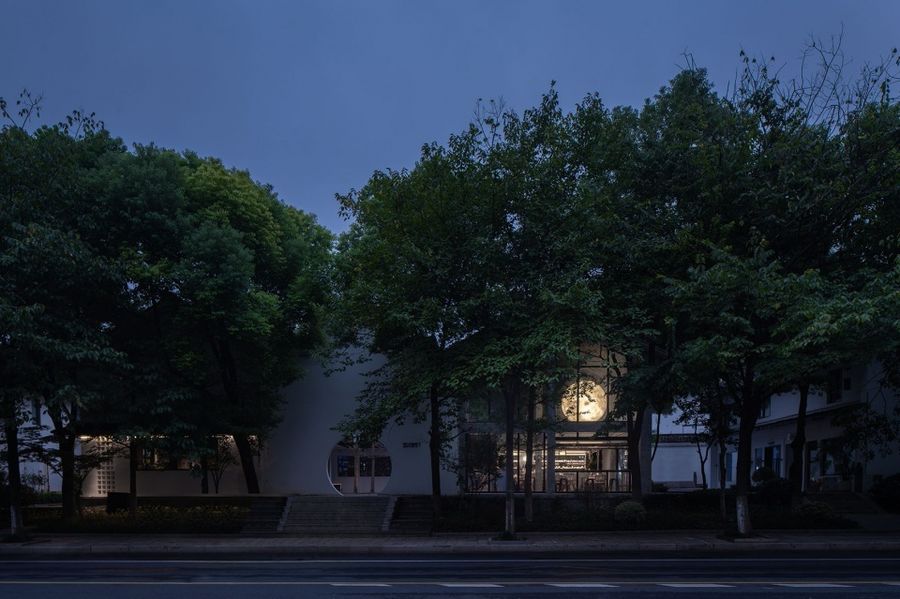
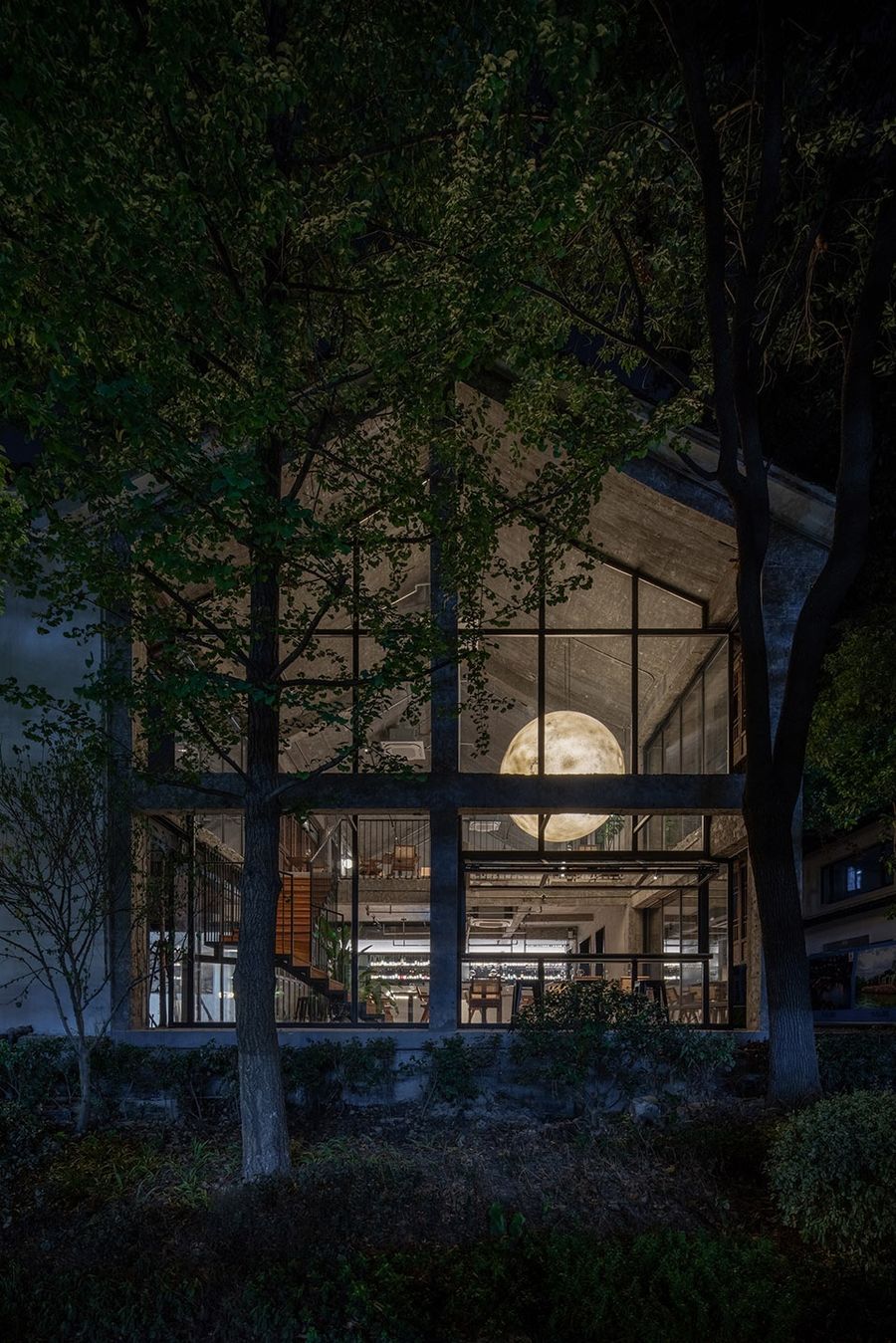
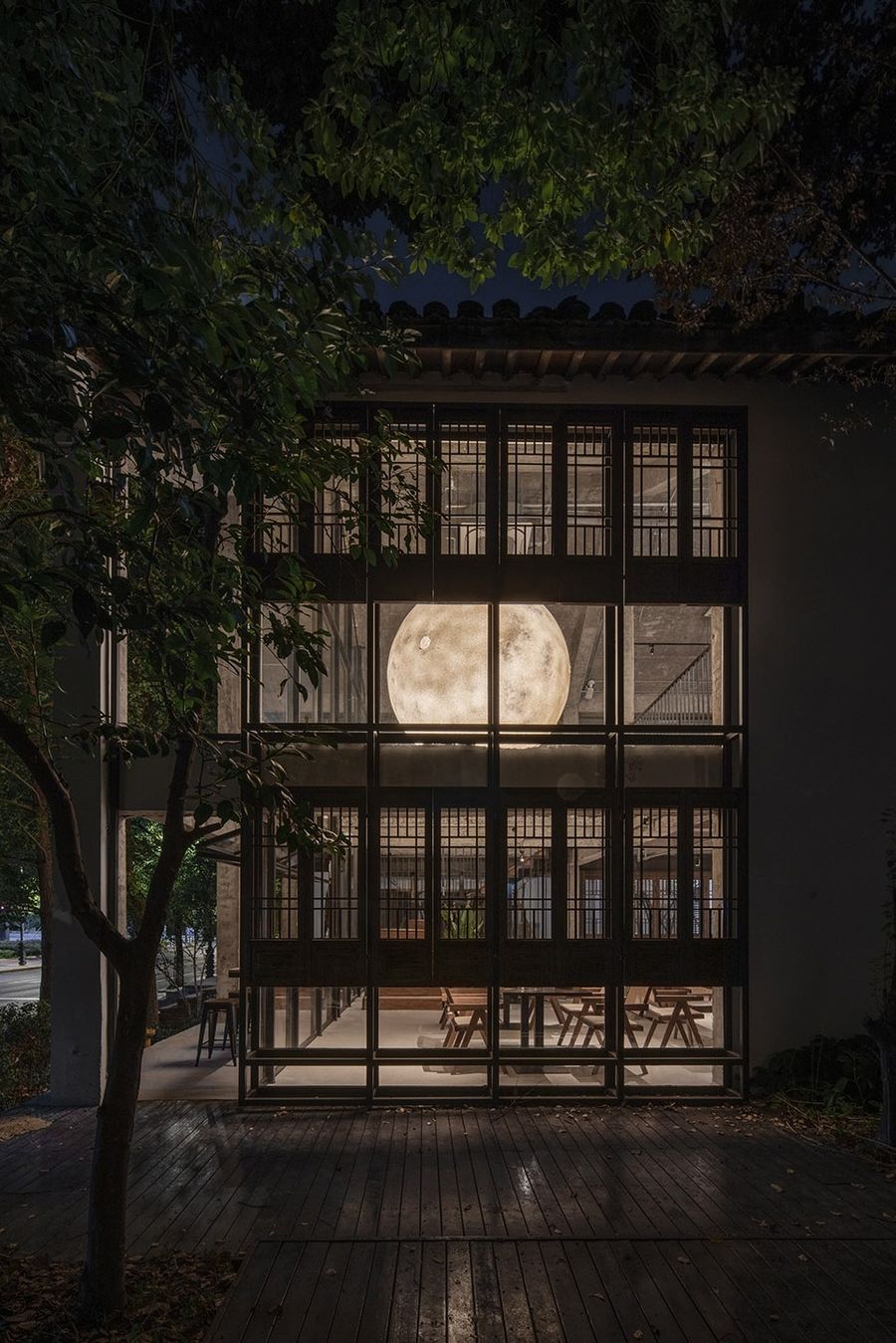
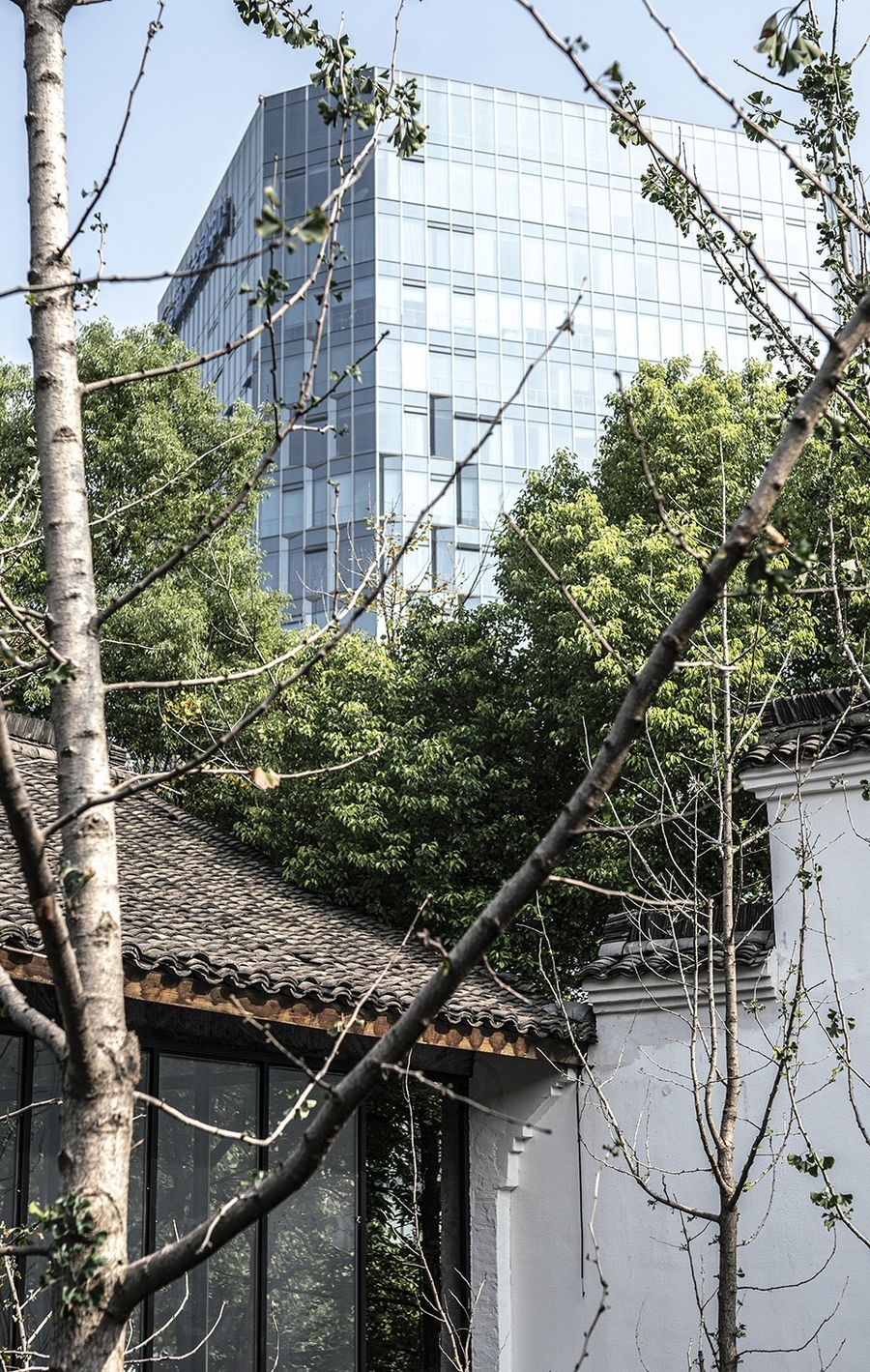
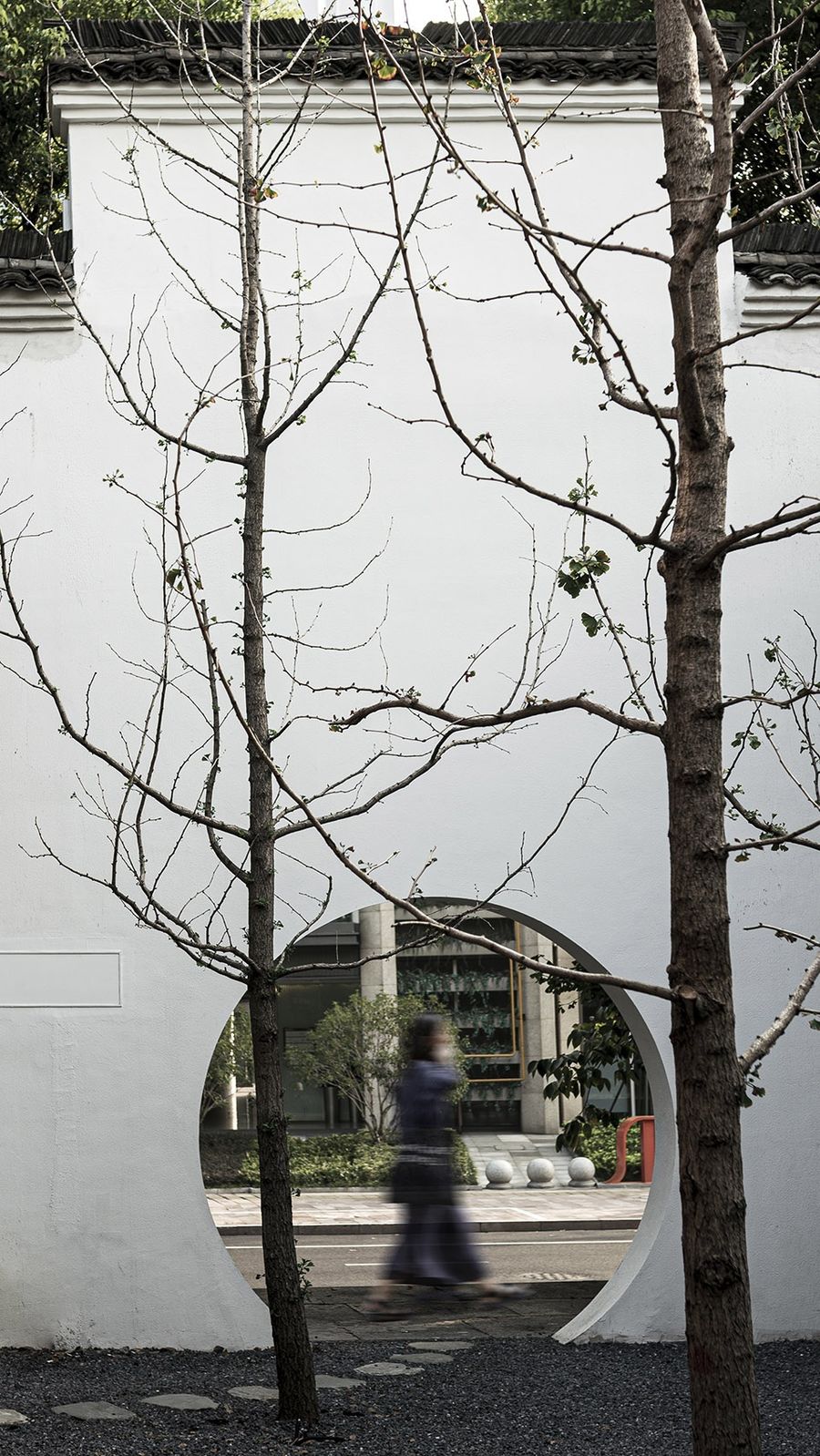
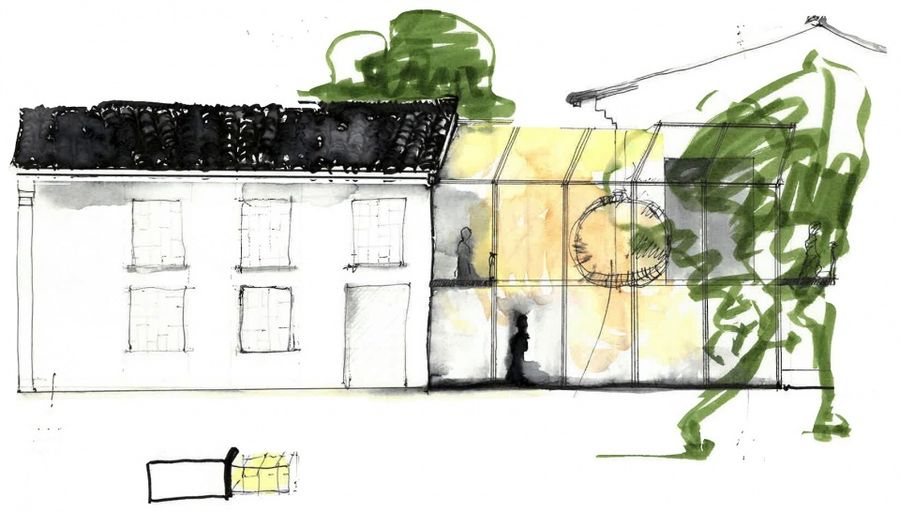
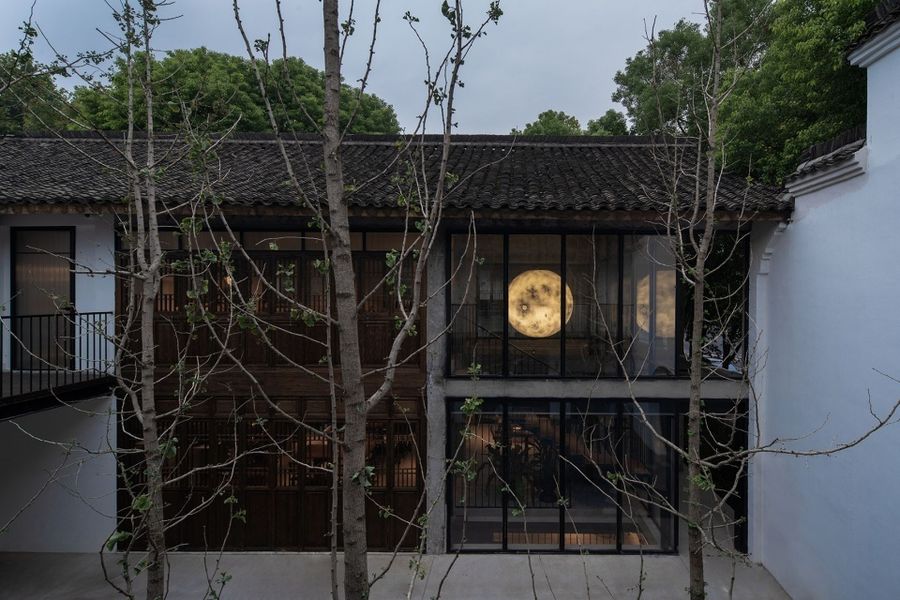
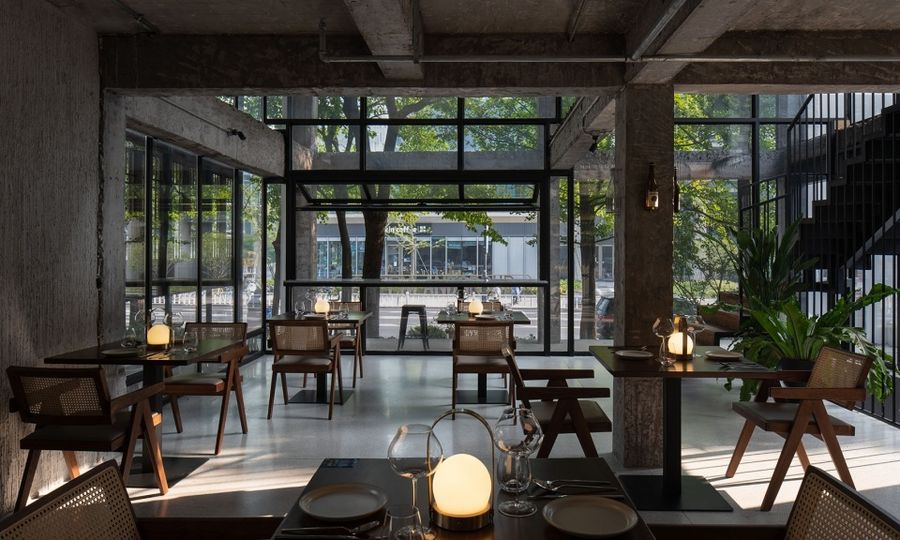
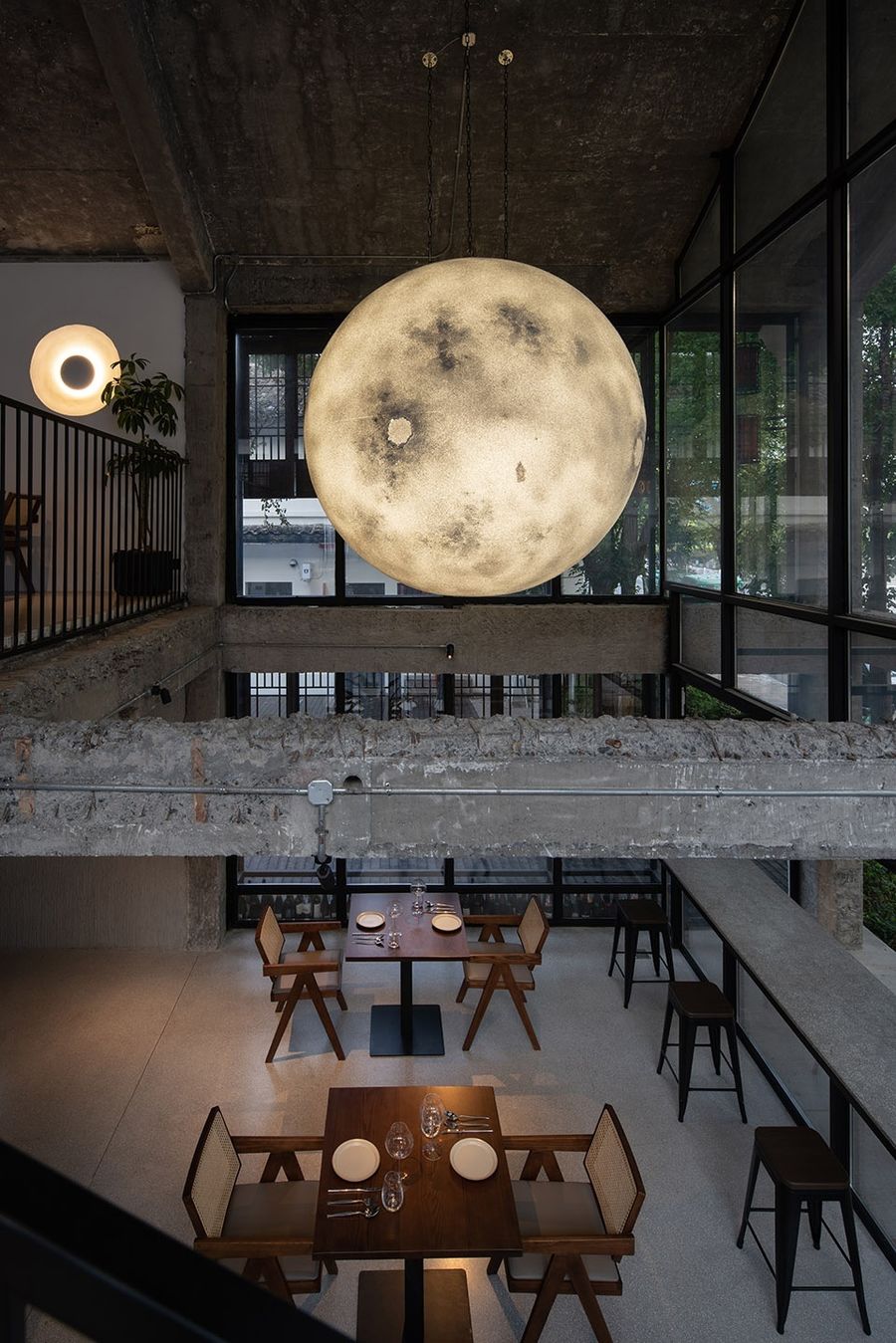
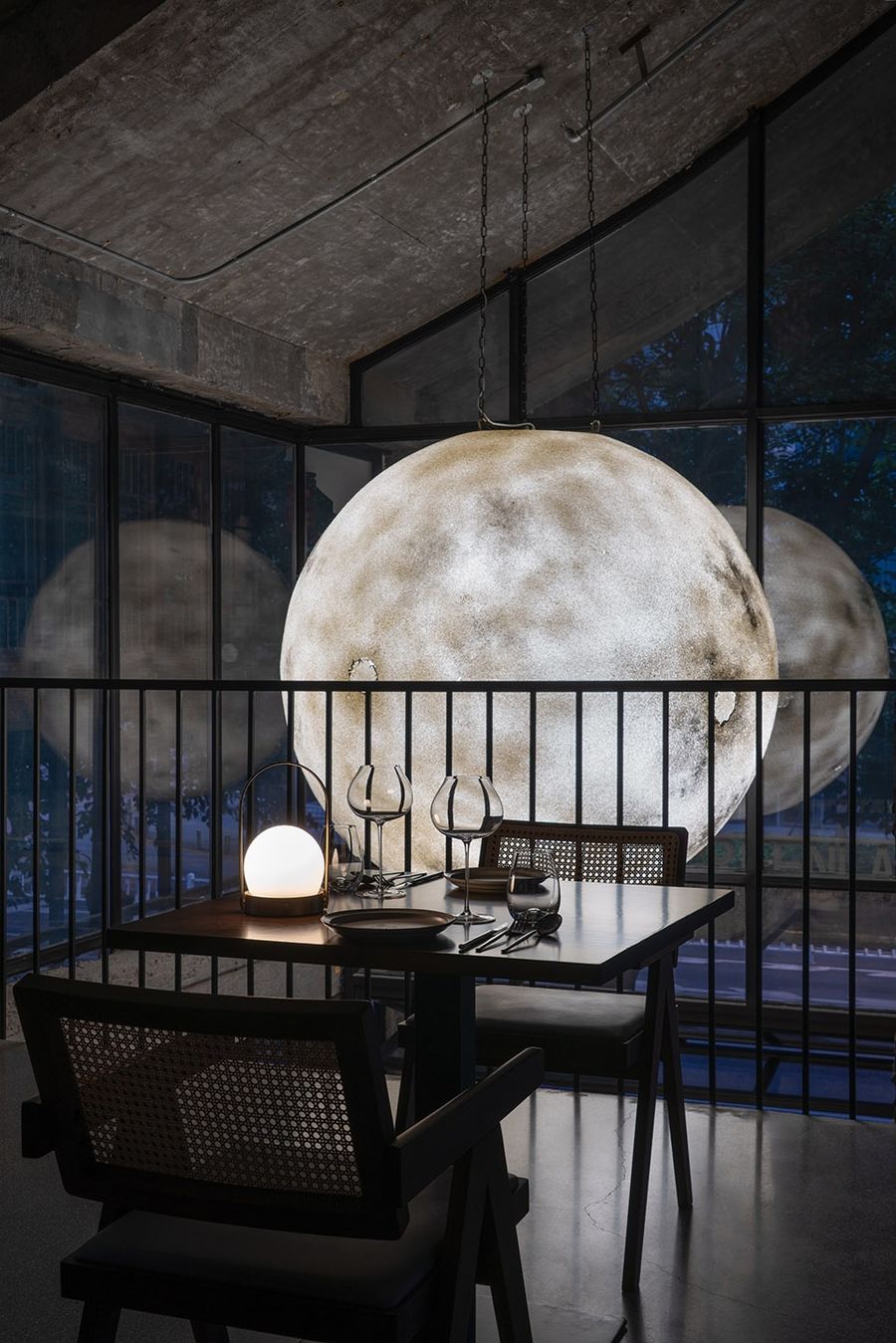
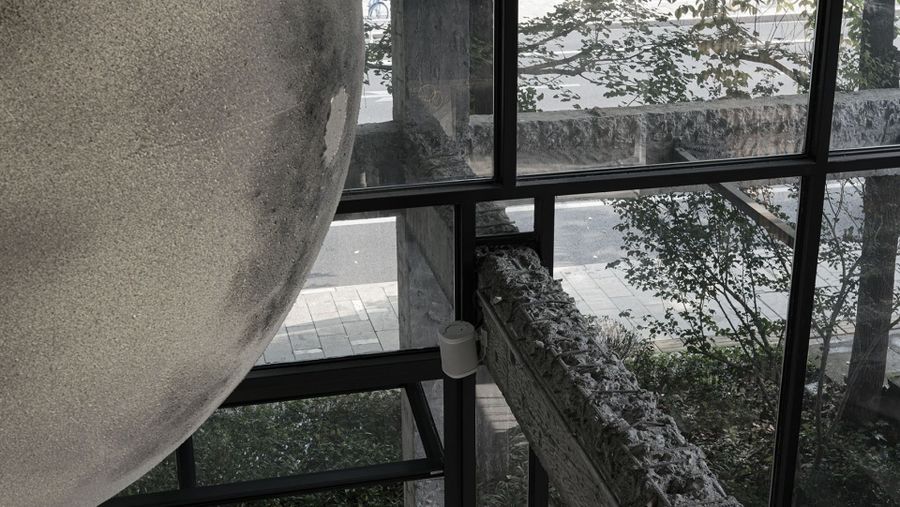
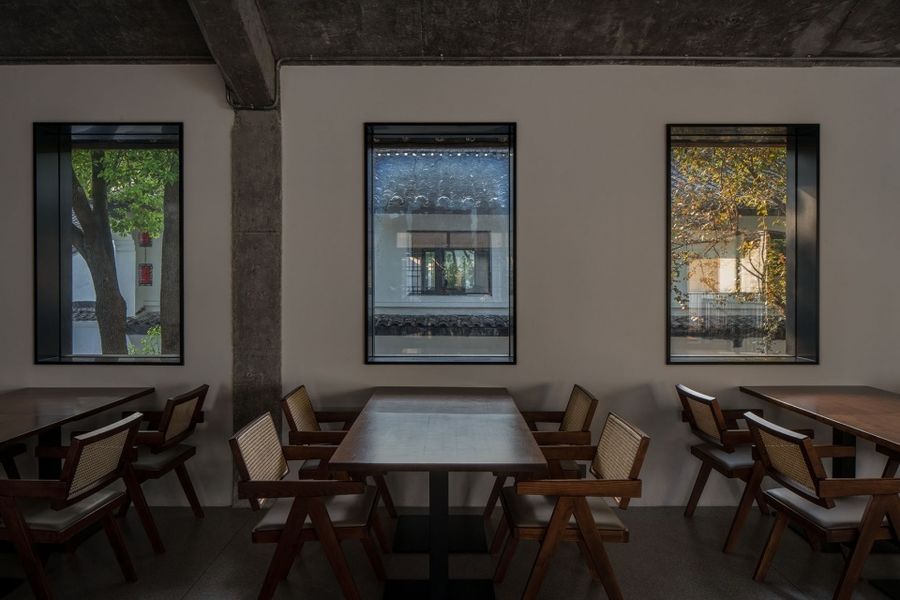
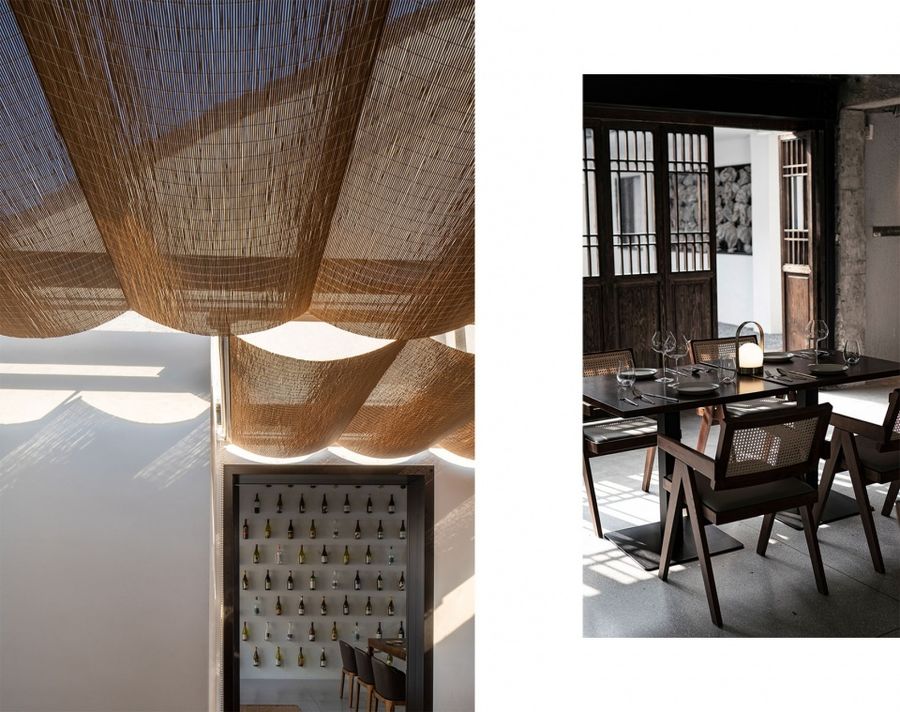
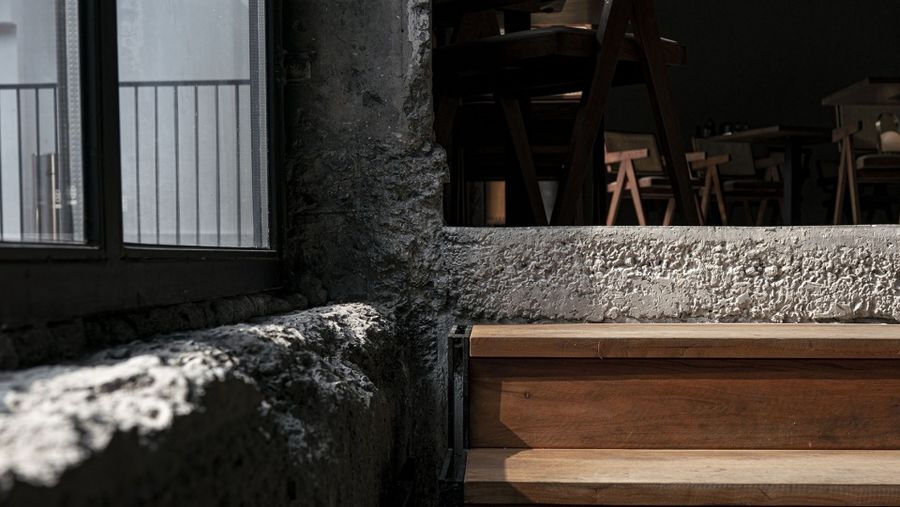
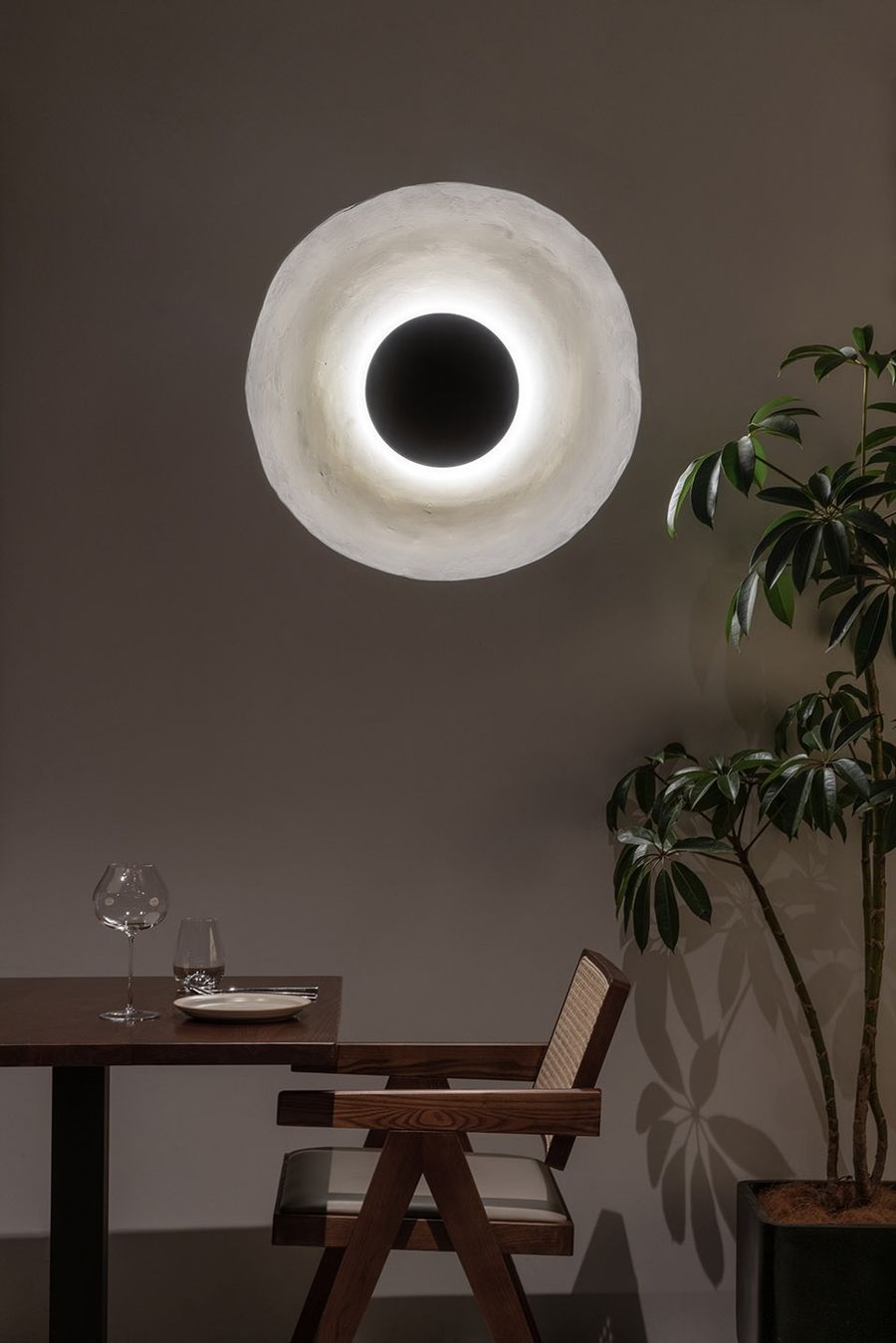
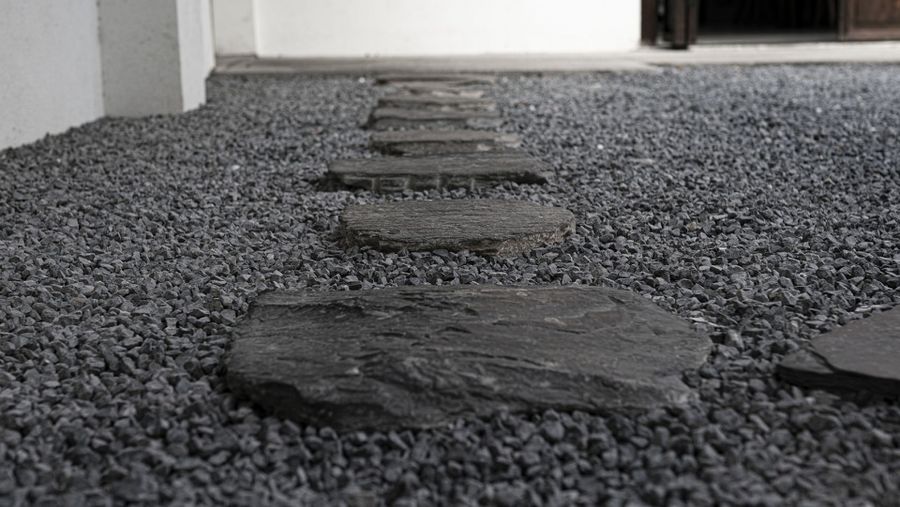
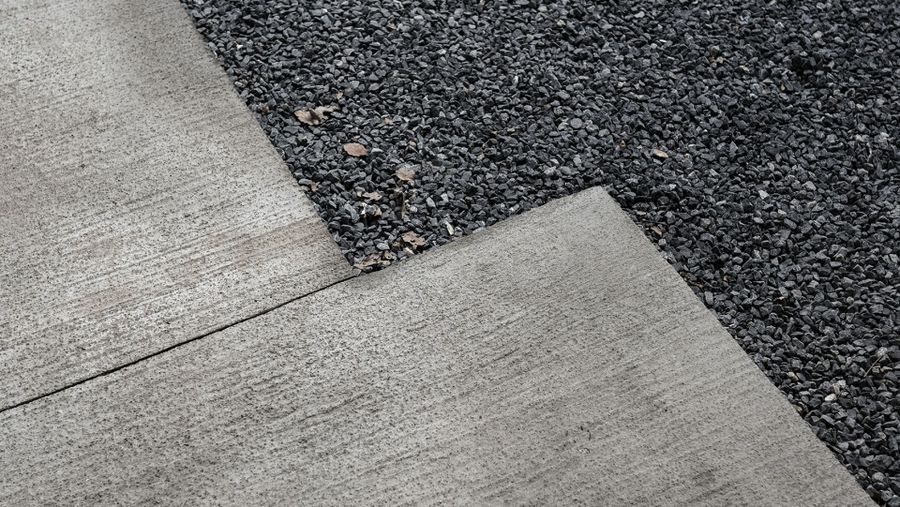
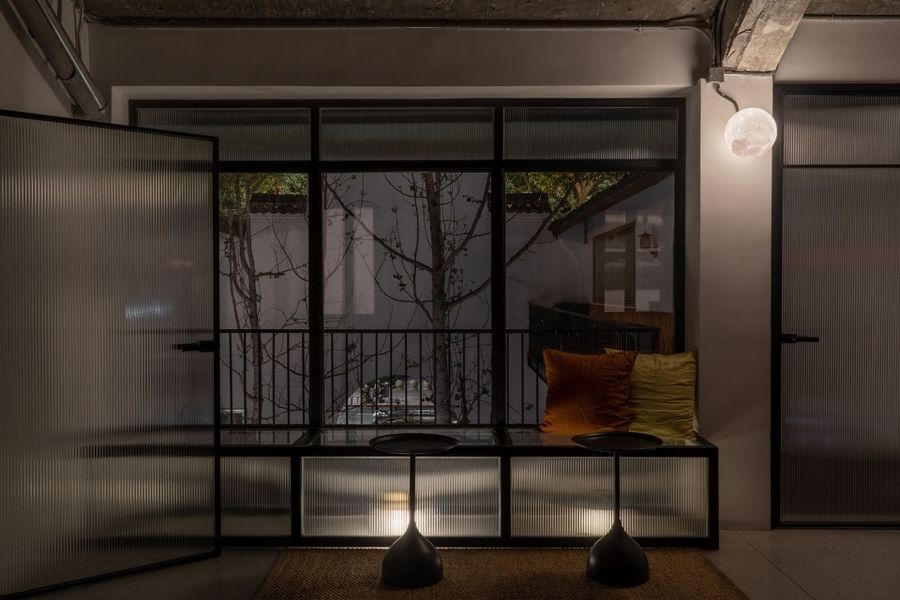
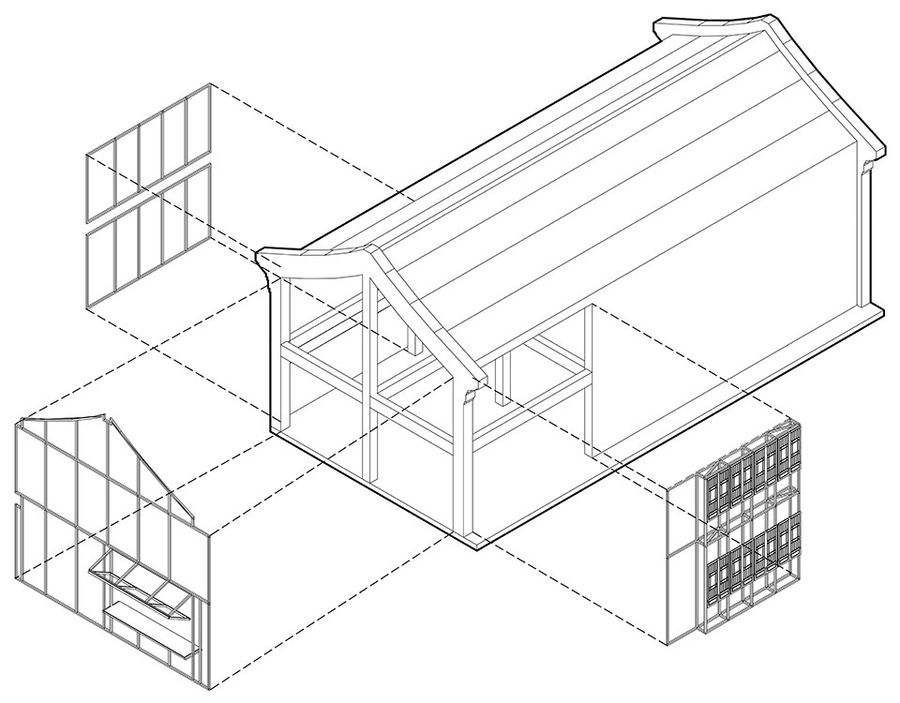
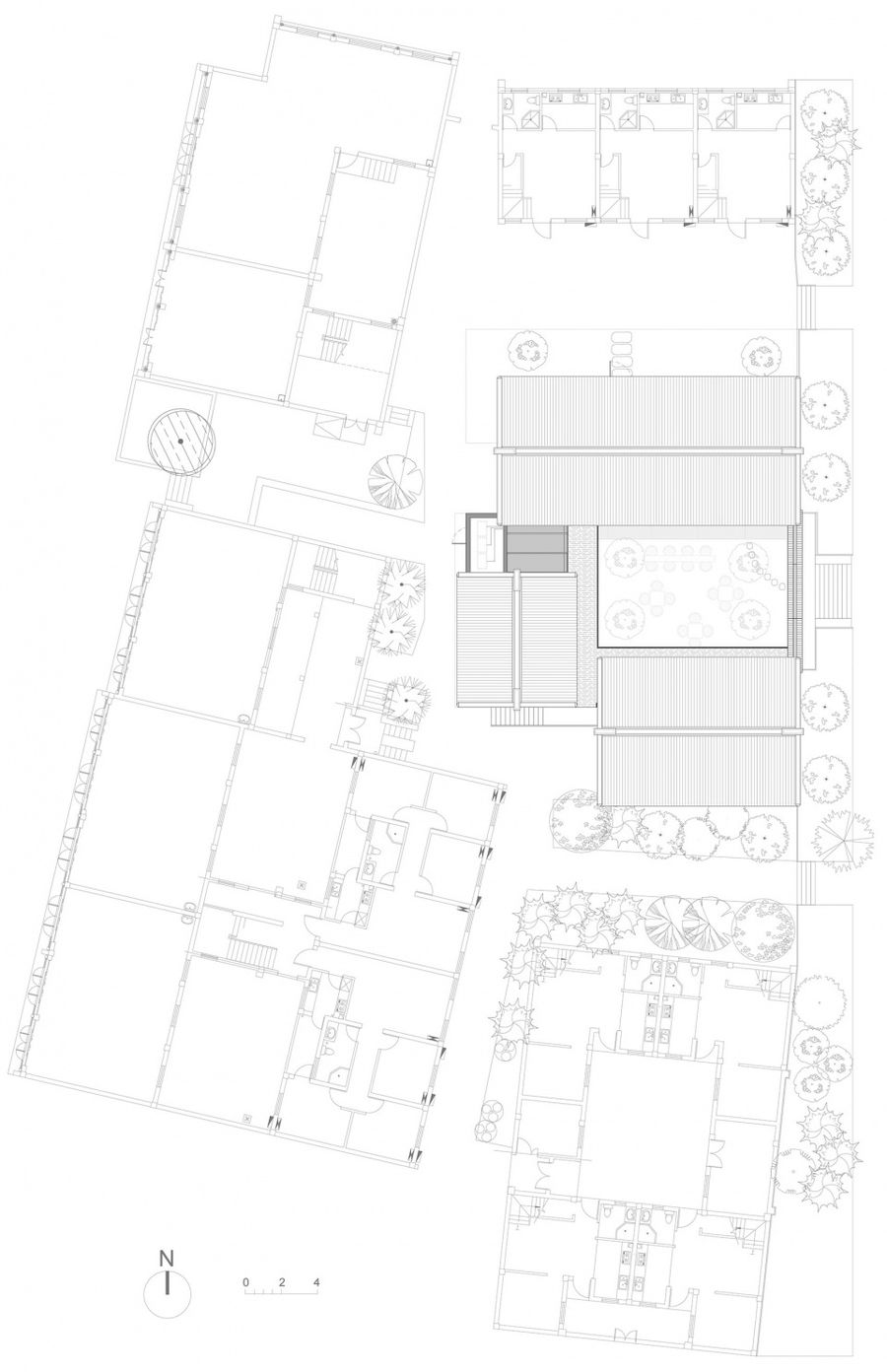
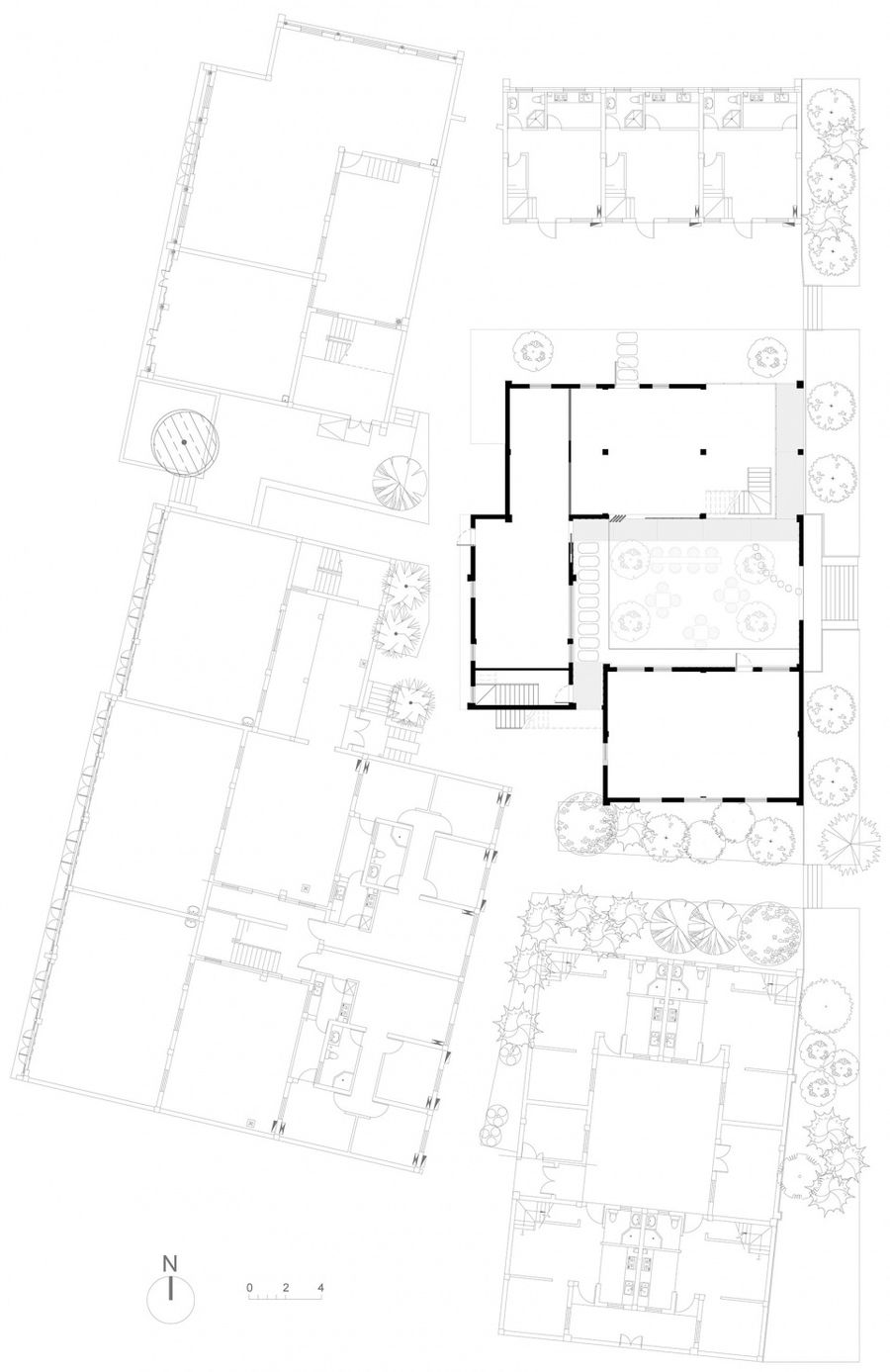
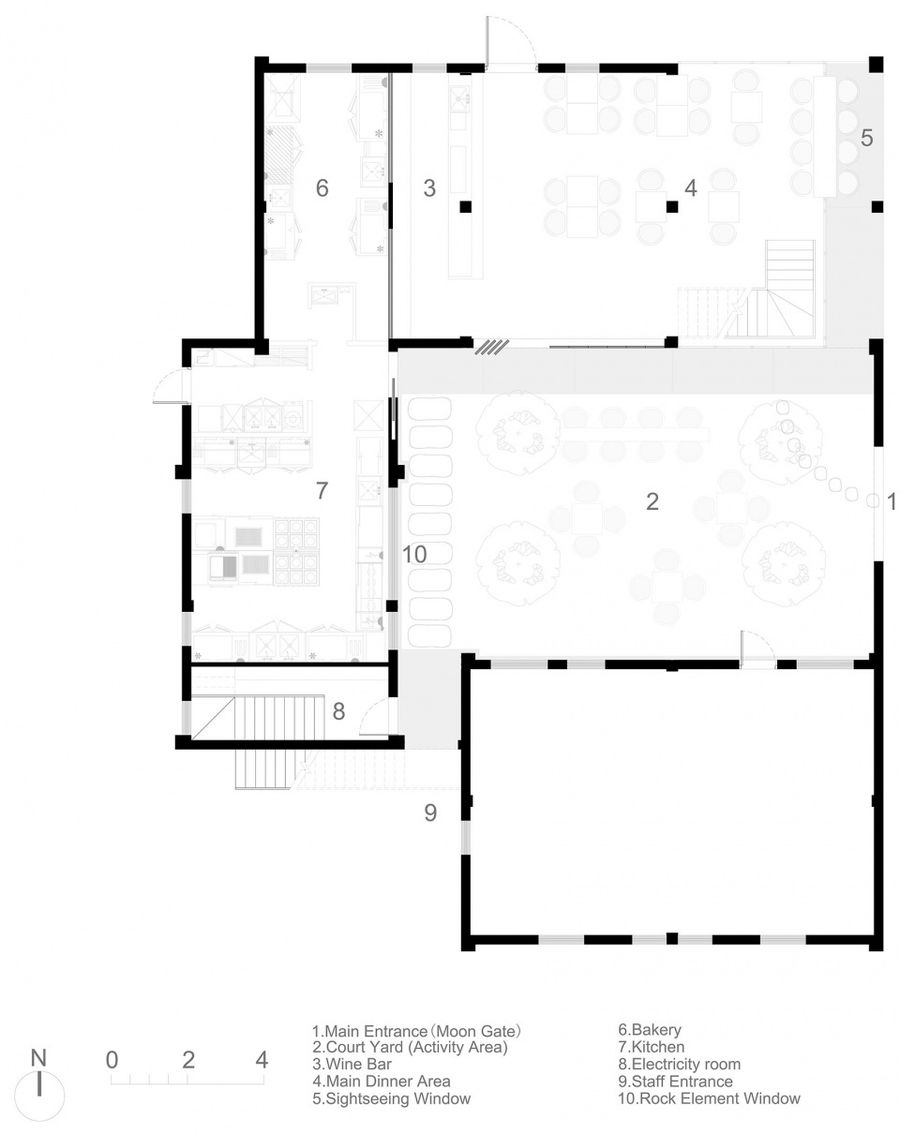
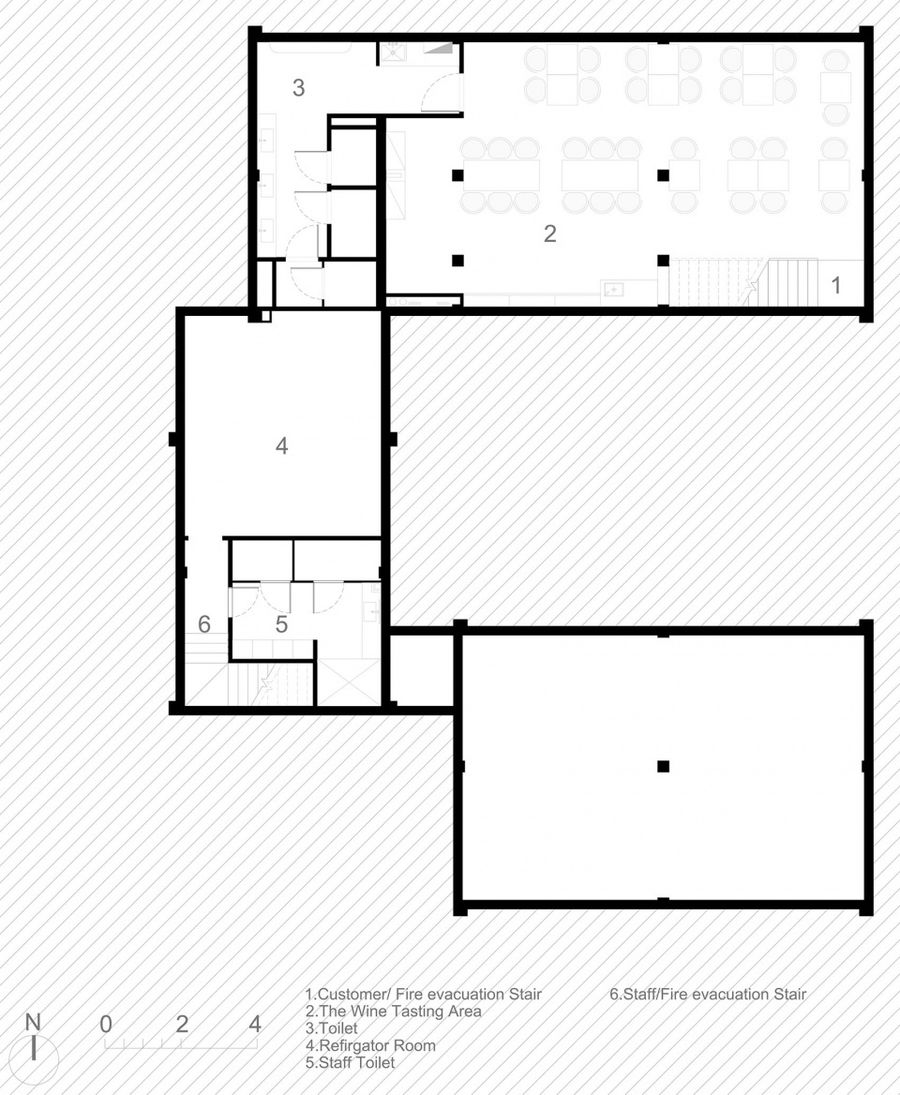
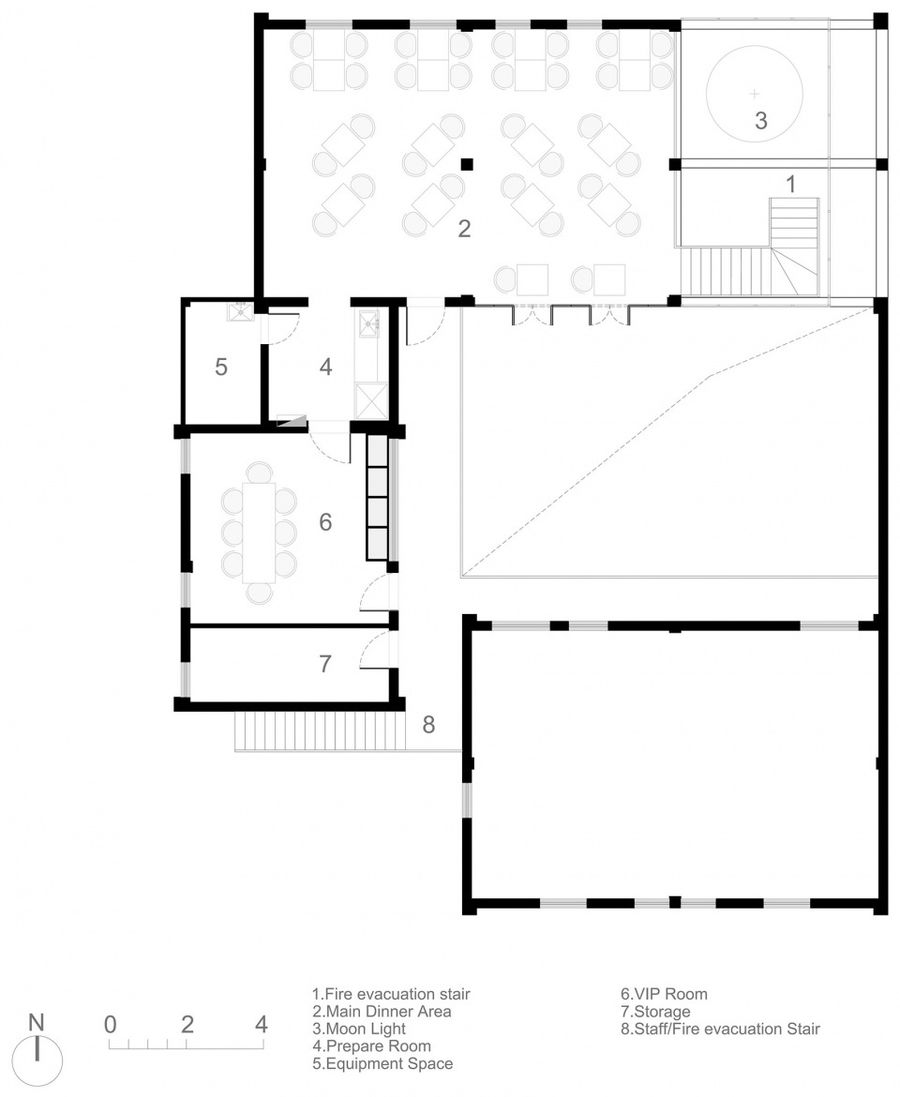
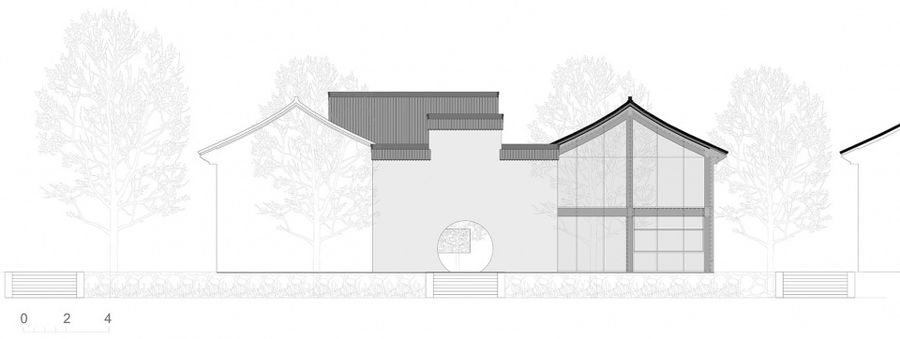
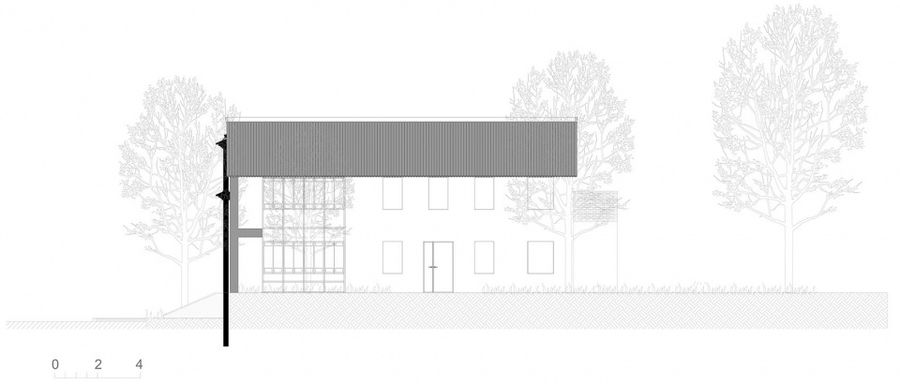
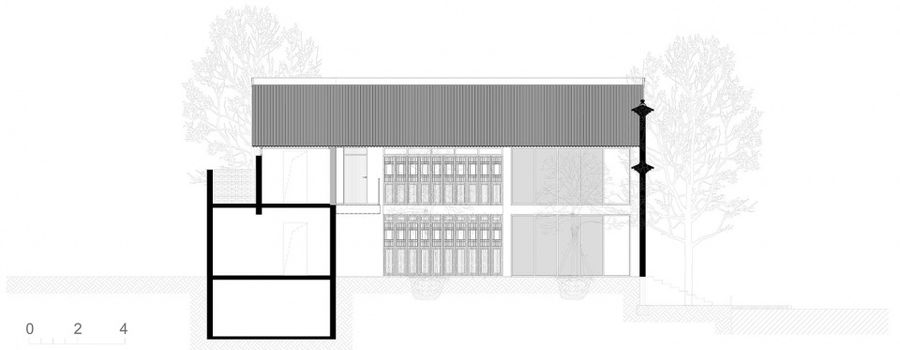











評(píng)論(0)